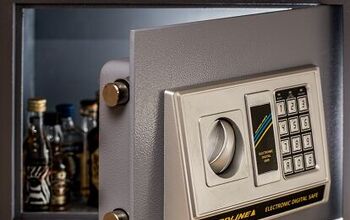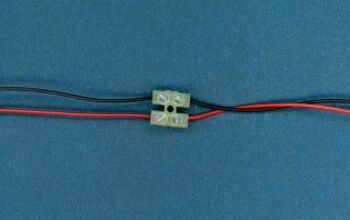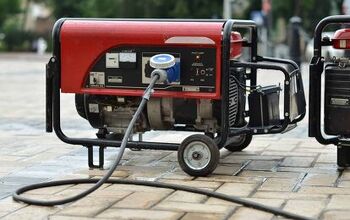How To Tell If An AC Fuse Is Blown (Find Out Now!)

Air conditioners are incredibly complex machines, which is why most people will immediately throw their hands up in the air and give up when they suddenly stop working. However, it’s not a smart thing to do. In many cases, your AC unit probably has a fairly fixable cause. If it’s a blown fuse, you can fix it in minutes. But, how can you tell if it’s actually a blown fuse?
If your air conditioner isn’t doing anything when you turn it on, it’s probably a blown fuse. You may hear a slight humming at the start, but that’s about it. To make sure that your fuse is blown, use a voltmeter or take a look to see if the filament in the fuse is busted.
An air conditioner that has a blown fuse may not seem like a good thing, but it’s something worth breathing a sigh of relief over. It’s a quick fix. This article will help you learn more about what to expect with this issue.
Do You Need Electricial Wiring or Panel Upgrade Services?
Get free, zero-commitment quotes from pro contractors near you.

Can An AC Unit Run Without A Working Fuse?
Fuses are one of the most basic safety measures that can be found in almost any major household appliance. They are important. Like, really important. The fuse is in charge of breaking a circuit in your unit if it detects an overflow in electricity or any signal of a short. Without a fuse, electricity can overflow in your system, putting it at risk of a fire, combustion, or just burnout.
If your fuse bursts, it’s because there has been enough stress on your unit’s electrical system to cause a short. In other words, your system needed to be shut down. To make sure that your system is safe, you have to replace the fuse before your unit can work. Otherwise, the circuit remains disconnected.
Signs Of A Bad Air Conditioner Fuse
Now that we know that you need a fuse in order to have your unit work, let’s actually get to the nitty-gritty details about signs that suggest your AC unit’s fuse went bad. Here’s what you really need to look for:
- Your outdoor AC unit won’t start. You keep trying to turn it on. Your thermostat keeps getting hit with a lower temperature. However, your actual unit isn’t doing anything. Sound familiar? It’s a classic sign of a bad fuse.
- There’s a slight hum near your outdoor unit, but no cold air. The reason why you can still hear a hum when there’s a blown AC fuse is because your furnace/thermostat is still sending signals that your home needs cold air. The hum is from the functional part of your HVAC system, not the AC unit itself.
- You took out the fuse and it looked bad. Fuses are not supposed to have loose filaments or burn marks. If you notice these, your fuse blew. Most AC units do not have the thin filaments you’d see on a furnace fuse or your space heater fuse so this might not always be a good way to tell.
- The voltmeter reading on the fuse was “0.” Zero volts means the fuse has been blown. That’s the way the fuse works to cut off your electricity flow.
Is There A Faster Way To Determine If Your AC Fuse Blew?
Absolutely. The easiest way to make sure that it’s your AC fuse is to buy a fuse that’s appropriate for your unit and replace it. If your air conditioner suddenly works again, then the only issue that you had was that your fuse went. This is usually less of a hassle than getting a read on the voltmeter, depending on if you have one or have to buy one.
How Much Does Replacing An AC Fuse Cost?
Air conditioner fuses vary in price, and for the most part, you shouldn’t have to hire someone to put a new one in your unit. It’s meant to be a simple task, after all. An AC unit fuse can cost between $1 and $12 for most units. Some units may be more expensive, but this is not something that you should anticipate.
My AC Fuse Keeps Blowing! What Should I Do?
Having a bad air conditioner fuse can be a one-off problem that can be ignored. However, you shouldn’t ignore a fuse that keeps blowing time after time. This could be due to a wide range of different causes, each with its own fix. Here are the biggest issues that can cause a fuse to continually blow:
- You could have a dirty filter. Dirty filters will overwork an air conditioning unit until the fuse blows. Thankfully, this is a rather quick fix. Just clean your filters and you should be good to go. Bonus: this will also improve the air quality in your home.
- Low refrigerant is a rather likely cause. Low refrigerant can cause your system to be overworked, all in the hopes of getting air to the lower temperature. Adding more refrigerant to your outdoor unit is a good fix. You can usually do this own, but if you want to, you can also hire a professional to help you out.
- A bad capacitor could also be at fault. A faulty capacitor is something that you don’t want to have happen in your unit, but it can be a cause for a repeated fuse blowing. Your capacitor regulates everything electrical, so if this goes, you’ll constantly need to have fuses get replaced. An AC capacitor costs a pretty penny, so brace yourself here.
- A faulty compressor can also cause repeated fuse blows. Sadly, most people will have to consider using their money for a new unit if the compressor goes. This part is usually the “lifeblood” of a unit.
- Finally, another major reason why your fuse could keep blowing deals with bad wiring. This is a classic reason why, and it happens with almost any unit eventually. If you recently had a storm, a pest infestation, or similar, you probably have a wiring issue. It can happen with any system.
Should You Use An AC Unit That Keeps Blowing Its Fuse?
If you notice your AC unit acting a little wonky, it’s always a smart idea to hit the pause button on its use. This is especially true when you’re dealing with an air conditioning unit that regularly blows its fuse. This is not a good sign, nor is it something you should ignore. It’s your unit’s version of a cry for help.
Using an AC unit despite regular blowouts is not a smart move. In fact, it’s a good way to make sure that your unit sustains long-term damage. The longer you use a unit that’s in need of repair, the shorter the unit’s lifespan will generally be. Get it serviced as soon as you can.
When Should You Call A Professional?
An AC unit that has regularly blown fuses is something that may warrant a professional call, but only if you’ve already cleaned the filters and added refrigerant on your own. Of course, any time that you end up with a problem that you don’t know how to fix on your own should be a moment where you consider calling a repairman.
With that said, you probably should call a repairman if you notice faulty wiring, worry that you have a blown capacitor, or if you believe that the compressor could be the cause. These are expensive repairs that are typically too complex for a person to fix without some serious training.
Do You Need Electricial Wiring or Panel Upgrade Services?
Get free, zero-commitment quotes from pro contractors near you.

Related Questions
Do you need to use the same type of fuse when replacing your blown AC fuse?
Ideally, yes. You do need the same type of fuse, and you also need to use a fuse that is made for the same voltage level as your current fuse. If you do not get the right type of fuse, it’ll either not fit or cause your unit to short out. So, when you’re working on replacing it, make sure that it’s a match for your model. Otherwise, it will not end up well for you.
Does it matter which way the fuses are inserted?
In other items, it might matter which way you place your fuses. However, this is not the case when it comes to air conditioning units. You can place the fuse either way, and still see decent results. AC unit fuses are meant to work both ways, so you don’t have to worry about dealing with one-sided blowouts.With that said, you should get worried if you get a burnout shortly after installing a new fuse. It’s not because of a bad fuse at this point. It’s something else entirely.
Do all AC units have fuses?
Though this was not always the case, not all AC units have fuses anymore. Fuses are typically only found on older residential models. If you have a model that was installed during the 2000s to 2010s, you probably don’t have one. Rather, you probably have a circuit box instead. If you have a circuit box, just reset the breaker to fix the issue.

Ossiana Tepfenhart is an expert writer, focusing on interior design and general home tips. Writing is her life, and it's what she does best. Her interests include art and real estate investments.
More by Ossiana Tepfenhart



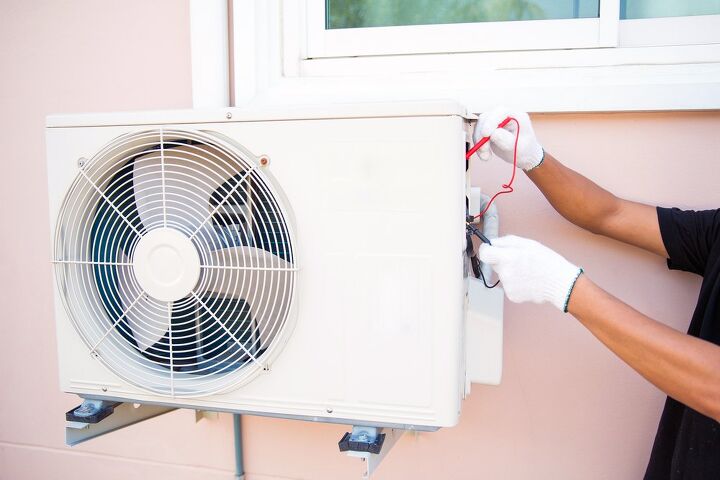








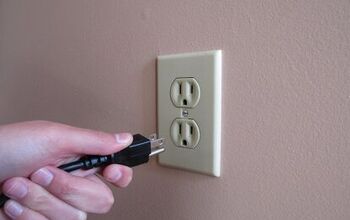


![Standard Dining Room Table Dimensions [for 4, 6, 8, 10 and 12 People]](https://cdn-fastly.upgradedhome.com/media/2023/07/31/9074335/standard-dining-room-table-dimensions-for-4-6-8-10-and-12-people.jpg?size=350x220)
